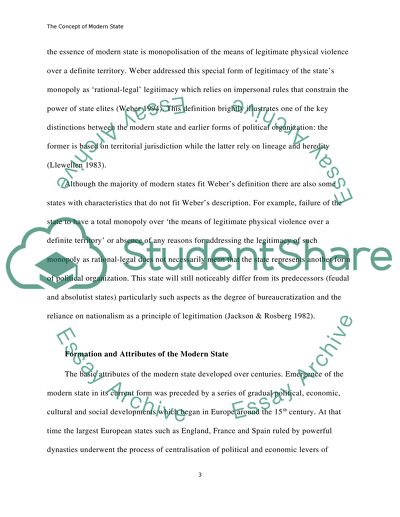Cite this document
(“The Concept of Modern State Essay Example | Topics and Well Written Essays - 2000 words”, n.d.)
Retrieved from https://studentshare.org/politics/1500497-the-concept-of-modern-state
Retrieved from https://studentshare.org/politics/1500497-the-concept-of-modern-state
(The Concept of Modern State Essay Example | Topics and Well Written Essays - 2000 Words)
https://studentshare.org/politics/1500497-the-concept-of-modern-state.
https://studentshare.org/politics/1500497-the-concept-of-modern-state.
“The Concept of Modern State Essay Example | Topics and Well Written Essays - 2000 Words”, n.d. https://studentshare.org/politics/1500497-the-concept-of-modern-state.


